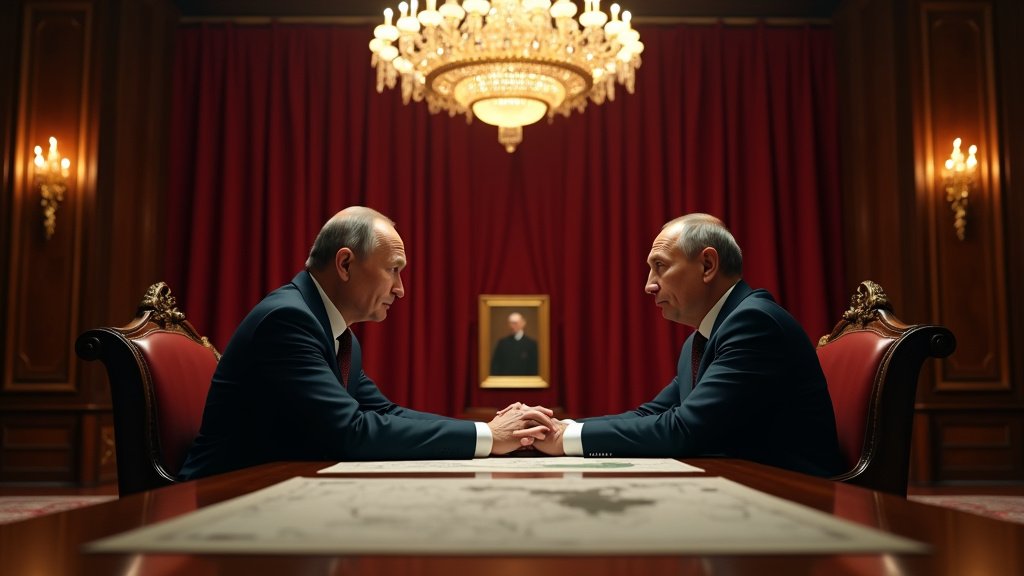On October 15, 2025, Russian President Vladimir Putin is set to host Syrian President Ahmed al-Sharaa in Moscow for pivotal talks, marking a significant moment in post-Bashar al-Assad Syria-Russia relations. This high-stakes meeting, which occurs as al-Sharaa embarks on his first official working visit to Russia since assuming the presidency, underscores Moscow’s efforts to establish a working rapport with Syria’s new leadership and solidify its strategic interests in the region.
A New Chapter for Syria
The Syrian political landscape has undergone a dramatic transformation. In December 2024, the regime of long-time President Bashar al-Assad collapsed following a swift rebel offensive. Ahmed al-Sharaa, previously known as the leader of Hay’at Tahrir al-Sham (HTS), emerged as the de facto leader of Syria. By January 2025, he was officially appointed as the interim president, ushering in a new era for the war-torn nation. Al-Sharaa, who has publicly committed to rebuilding Syria and ensuring stability, faces the immense challenge of uniting a fractured country and navigating complex international relationships. His appointment signifies a definitive break from decades of Assad family rule.
Russia’s Enduring Strategic Interests
Russia has been a staunch ally of the Assad regime for years, playing a critical role in its survival. However, with the fall of Assad and the rise of al-Sharaa, Moscow is keen to secure its geopolitical and military presence in Syria. The Kremlin has confirmed that discussions will prominently feature the status and future of Russia’s key military installations, including the naval base in Tartus and the Hmeimim air base on the Mediterranean coast. These bases are crucial for projecting Russian power in the Middle East. The meeting is therefore not just a diplomatic courtesy but a strategic necessity for Russia to maintain its influence and operational capabilities in the Levant. The talks are also expected to touch upon the current state and future prospects of bilateral cooperation in various sectors, including politics, trade, economy, and cultural and humanitarian affairs.
Key Agenda: Accountability and Regional Dynamics
A sensitive yet critical item on the agenda is the potential request for the extradition of Bashar al-Assad, who reportedly received asylum in Russia after fleeing Damascus. While al-Sharaa has stated his intention to seek accountability for the former regime through legal means, he has also emphasized that this pursuit will not lead to conflict with Russia, acknowledging the immense cost such a confrontation would entail for Syria. The discussions are also framed within the broader context of recent happenings in the Middle East. This includes the significant Gaza peace deal brokered on October 13, 2025, which has recalibrated regional diplomacy, and ongoing geopolitical tensions. Syria’s own recent parliamentary elections, held on October 5, 2025, are also seen by Russia as a positive development that will bolster societal consolidation.
A Shifting Geopolitical Landscape
President al-Sharaa’s visit to Moscow comes at a time of significant flux in the Middle East. The region is grappling with the aftermath of the Gaza peace agreement, intensified Houthi activities, and the complex interplay of regional and global powers. For Syria, establishing a stable relationship with Russia is paramount for its reconstruction and security. This trending diplomatic engagement offers an exclusive glimpse into how Damascus is seeking to redefine its international partnerships and secure its future on the global stage. The discussions between Putin and al-Sharaa are anticipated to set the tone for future bilateral ties and have broader implications for regional stability and security.
Conclusion: Charting a New Course
The meeting between Putin and al-Sharaa represents more than just a diplomatic encounter; it symbolizes the intricate realpolitik shaping the Middle East. As Syria endeavors to rebuild and reassert its place in the international community, its relationship with Russia remains a critical anchor. The outcomes of these talks will be closely watched for insights into Syria’s path forward, Russia’s regional strategy, and the evolving dynamics of Middle Eastern diplomacy.





